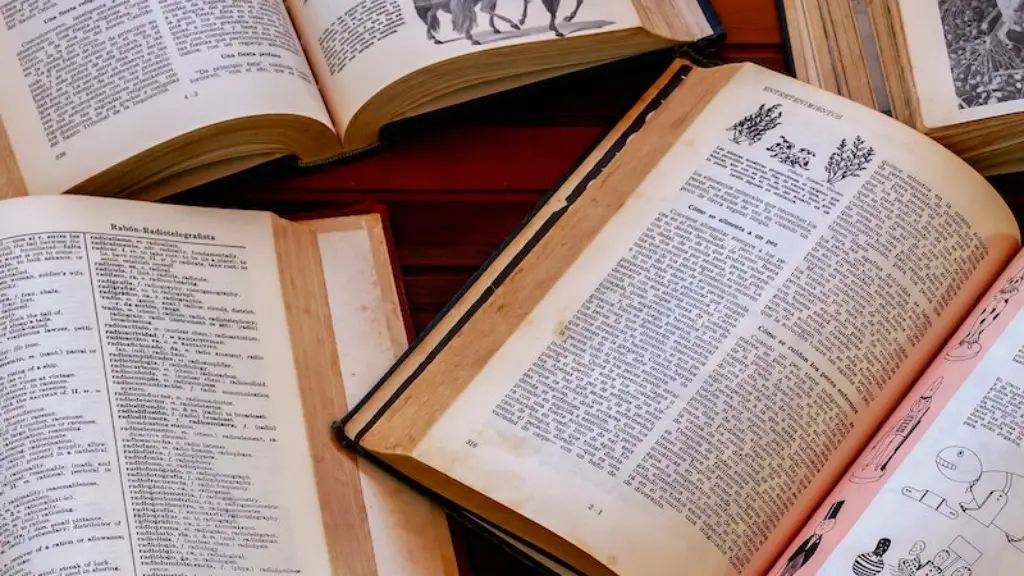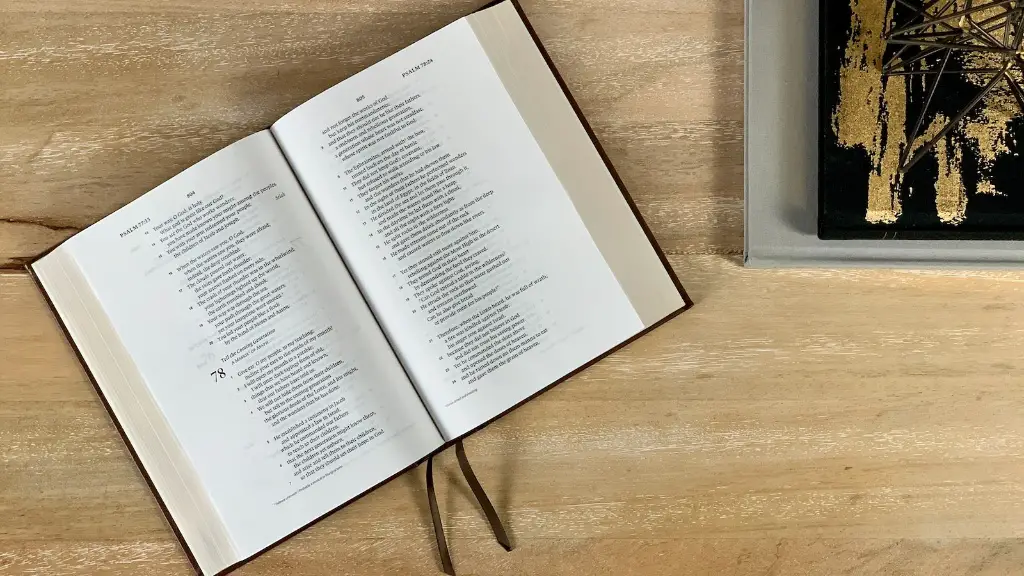Langston Hughes and his Poetry
Langston Hughes was an American poet and novelist, born in Joplin, Missouri to parents, James and Carrie Hughes. Hughes’s parents separated shortly after his birth and his mother went to Cuba for some time. From this experience, Hughes developed an affinity for the sea that featured prominently in his poetry. He was a key figure in the Harlem Renaissance, an African-American literary movement of the 1920s and 30s. Through his writing, Hughes strove to explore the African-American experience in the early 20th century.
Hughes’s writing was noted for its vivid portrayal of black life in America. He wrote mostly in free verse and wrote poetry, novels, short stories, plays, and essays. He wrote prolifically and his works remain a popular source of inspiration for readers of all ages.
Hughes’s works focused on the struggles of African-Americans of the time. His writing paints a vivid picture of the pain, injustice, and racism that African-Americans had to endure. His works express the desire of black people to attain equality and justice. He uses poetic language to capture the beauty and power of the African-American experience.
Hughes often used African-American dialect to convey his message and evoke emotion. His works often contained symbolism, using metaphors to reinforce his point. His works were often filled with charged emotional language and subtle criticism of the power structures that placed African-Americans in an inferior position. He used satire to rebuke the white power structure and to criticize its racism.
Considered one of the most important African-American poets, Hughes’s poetry is widely read and appreciated for its power and insight. His works were instrumental in helping define the African-American experience and bring recognition to African-American culture. Many of his works are considered classics and have been studied by scholars and enjoyed by readers of all ages.
Experiences that influenced Hughes’s Poetry
Hughes wrote poetry that was heavily influenced by his own experiences. His experiences came to life in his works, creating vivid descriptions of what it was like to be black in America during his time. His upbringing had a strong influence on him, as his mother was a strong believer in the importance of education and instilled this in Hughes from a young age. His father captained a boat and exposed Hughes to life on the sea. This experience found its way in his works, which often feature symbolism and metaphors of the sea.
Hughes traveled extensively in his lifetime, visiting countries such as Russia, France, England, and West Africa. These travels gave him the opportunity to observe and experience other cultures, which he wrote about in his works. He even wrote in the Yiddish language while living in France. These experiences influenced his writing and helped him tell stories of African-American people in a way that was both universal and specific.
Hughes’s writing is notable for its vibrant and emotive language. He “was deeply formed by the experience of music,” according to literary critic and historian Arnold Rampersad. His work featured jazz-like rhythms, making it especially vivid and evocative. Music was an important part of Hughes’s life, from classical to gospel. He was inspired by musical styles from around the world and this is reflected in his works.
Hughes was a keen observer of his surroundings and his travels provided him with insights into the lives of people around the world. His experiences led him to become an advocate for people of all races, inspiring his poetry and prose. He wrote to offer a window into the African-American experience, to bear witness to the injustice and suffering of his people, but also to celebrate and revel in their culture and achievements.
Social Injustice Portrayed in Langston Hughes’s Poetry
One of the most notable themes in Langston Hughes’s writing is the injustice faced by African-Americans. This injustice was not just limited to racism, but extended to the various other forms of discrimination that African-Americans faced such as marginalization and lack of access to education and job opportunities. Hughes was acutely aware of these injustices and his poetry speaks directly to the injustices that African-Americans were facing.
One example of this is in his poem “I, Too” where he speaks about racial discrimination and the limitations for African- Americans. This is seen in the line “I, too, sing America”, where Hughes speaks of the image of America excluding African- Americans from the American dream. He calls out this false image by saying, “I am the darker brother. They send me to eat in the kitchen … But I laugh, and eat well, And grow strong”. This illustrates the strength of African- Americans despite the discrimination they faced, and shows that they can still be strong despite the inadequacies.
In his poem “Harlem”, Hughes speaks about the aspirations and dreams of African-Americans living in Harlem. He speaks of the dream deferred that African-Americans face from the lack of opportunities and access to resources. He further speaks of how these dreams can be deferred for so long that they can explode, signifying the potential frustration and anger that can bubble up if dreams are deferred for too long. By focusing on the social injustices that African-Americans faced, Hughes gave a voice to the voiceless.
The Legacy of Langston Hughes
Langston Hughes is recognized as one of the most influential American poets of the 20th century. His writing contained important social commentary and his works remain an important source of inspiration for many readers today. His writing captures the beauty and power of the African-American experience, even in the face of injustice and inequality. His works are widely studied, read, and enjoyed by readers of all ages.
Hughes’s works have been adapted into plays, films, and musicals. He was awarded a National Humanities Medal and a National Medal of Arts by President Clinton. His works have become integral to African-American literature and are cited in many book reviews and discussion panels.
More than two decades after his passing, Langston Hughes remains an inspiration for African-American writers and readers. His powerful works direct attention to the injustices faced by African-Americans and provide insight into their situation in the early 20th century. His writing serves as a reminder that black voices can and should be heard.
Style of Langston Hughes’s Poetry
Langston Hughes’s writing style is characterized by its vivid imagery and emotive language. His words offer a window into the African-American experience and he uses symbolism, metaphor, and satire to highlight the issues and experiences of African-Americans. His works are steeped in musicality, reflecting the importance of music in his life. Jazz-like rhythms often appear in his poetry, providing a source of poetic expression.
Hughes’s works often focus on social issues and injustices, particularly those faced by African-Americans. His works often evoke strong emotions and are rife with symbolism. He was well-versed in different languages and was fluent in English and French. His works were heavily influenced by his travels, as well as the culture of other countries he visited. His works are considered classics and are much appreciated for the insight into the African-American experience they provide.
Langston Hughes and his Influence on the Harlem Renaissance
Langston Hughes’s work was instrumental in defining the Harlem Renaissance, an African-American literary movement of the 1920s and 1930s. He was regarded as one of the leading figures of the movement and his works were integral to it. He used his writing to express the pain of discrimination and racism, and to celebrate the beauty and strength of African-American culture.
Hughes was the catalyst for a new era in African-American literature and his writings were hugely influential in the movement. His works named and exposed the injustices faced by African-Americans, elevating black voices in literature. He wrote prolifically and his works are still widely read and appreciated today.
He also penned novels, short stories, plays and essays, showcasing the richness of the African-American experience. He wrote books such as Not Without Laughter, The Ways of White Folks, and Montage of a Dream Deferred which provided an honest and compassionate view into the struggles and joys of African-Americans. Hughes was dedicated to telling stories that gave an insight into the African-American condition.
Langston Hughes had a profound influence on the Harlem Renaissance and the African-American experience. His writing captured the beauty and power of African-American life and culture and remains a powerful source of inspiration for readers of all ages. He is remembered as one of the most important and influential African-American poets of all time.
Langston Hughes’s Lasting Impact
The impact of Langston Hughes’s work is still felt today. He was a passionate advocate for African-American rights and his works exposed the injustices faced by the African-American community. He was a master of the written word and his works remain an inspiration to readers of all ages. His works are a bridge between generations of African-Americans, providing insight into the struggles of the past.
Hughes’s works are integral to African-American literature and studies. His works are included in school curriculum, college syllabuses, and book reviews. He was awarded the National Humanities Medal in 1996 and the National Medal of Arts in 1997 by President Bill Clinton, recognizing his important contributions to American culture.
Langston Hughes is a revered figure in American literature and the lasting impact of his work cannot be overstated. His works stand as a testament to the African-American experience and remain an important bridge between the past, present, and future. He has become an inspiration for African-American writers and readers and his works will continue to be enjoyed for years to come.





